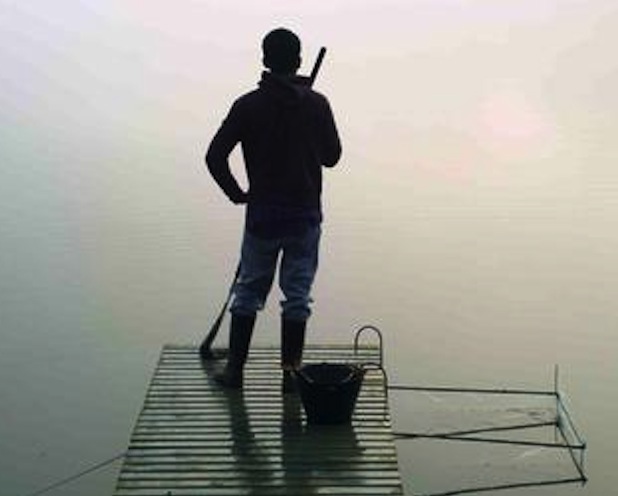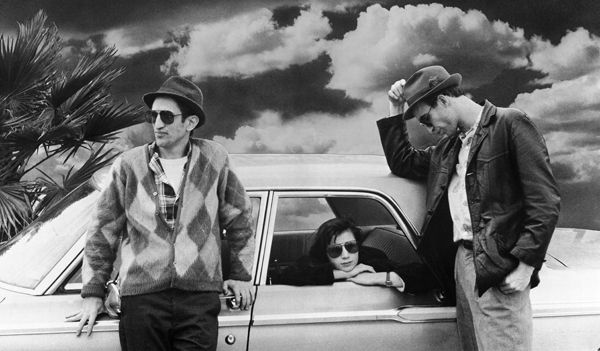Fuse Film Review: At the Maine International Film Festival — “The Summer of Flying Fish” and “Stranger Than Paradise”
The Summer of Flying Fish is visual to the max; Stranger Then Paradise remains one of the most important indie films of the last thirty years.
By Paul Dervis
The Summer of Flying Fish, the first feature by Chilean documentary filmmaker Marcela Said, is listed on IMDb as a comedy/drama, but there are few laughs here. It is a virtually silent movie, with a haunting soundtrack, stunning scenery, and dour characters who are attempting to enjoy their retreat on a lake in the woods. But there is no joy to be found in this sad family.
The native Mapuche people are the indigenous population of this area in south-central Chile. They have been maintaining their organic lifestyle for countless generations. But police and rich industrialists have encroached on the land. There is a seething uneasiness between these clashing cultures, and the director does an admirable job of generating an ominous atmosphere.
Don Francisco, played by Gregory Cohen, has built a modern fortress on the lake. The setting is beautiful, but he is unable to feel at ease. Too many troubles. The lake is full of carp, and it is driving him mad. The woods are unsafe; he doesn’t want his children wandering through the bucolic surroundings alone. His staff and servants, all Mapuche, are ordered to rid the lake of the undesirable fish. They catch them in traps and are even told to use dynamite in the water, where one of the young workers is injured. But none of the disruption matters to Don Francisco, who holds native lives cheaply.
His teenaged daughter, Manena (Francisca Walker), is beginning to feel her sexuality. She has become friendly with a Mapuche youth and is rapidly becoming disenchanted with her father’s callousness, not only to the staff, but to her mother. Meanwhile, Don Francisco has plans to take Manena to New York and leave his wife behind.
The summer is rapidly becoming a tinderbox: houses are set on fire, animals are killed, police are brutalizing the locals. Tragedy awaits …
Said has created a film that is more focused on evoking a mood than telling a story. There is little action and even less dialogue — the narrative is thin and disjointed — so the movie’s impact depends on your becoming drawn into its succession of images. Fortunately, these hypnotic visuals are compelling enough to repay the effort.
This is not a film for everyone. If you need to know how the plot gets from one place to another, you will be in a state of constant confusion. Said never really tells the audience what is happening or how we came to be where we are in the narrative. But the director shows what he is about; if you are willing to give The Summer of Flying Fish sufficient freedom from conventional expectations, the film will carry the viewer through a dark and disturbing pictorial journey.
Also screened at the MIFF – Jim Jarmusch’s breakthrough film, 1984’s Stranger Than Paradise. The first third of the movie was shot during a weekend, then the money ran out. Over a year later enough capital was raised to finish the project and a directing star was born. Jarmusch has created many of the most important Indie films of the last thirty years, including Down By Law, Night on Earth, and the brilliant Mystery Train.
Stranger Than Paradise has all the earmarks of low budget projects of its era. Funky lighting, bad sound, and a rambling plot. Yet all these issues work for the film. It is both remarkably topical and a compelling time capsule.
The movie follows Willie, Eva, and Eddie. Willie is a down-and-out young man living in a one room apartment in a seedy part of New York City. Eva, his cousin from Budapest, is flying in and plans to stay with him for a week to ten days before heading to Cleveland to live with an aunt. Willie hates this arrangement, but his friend Eddie is a bit smitten with her. Willie warms up to Eva and actually misses her when she leaves.
Flash forward one year. Eddie and Willie jump into a car, someone else’s car, and drive to Cleveland. All are happy to be together, but not in Cleveland. So they head off to Florida and their adventure begins.
The beauty of this film is in its evocation of the aimlessness of its inarticulate characters. They are all edgy, but innocent. Their inability to communicate with words is offset by their unspoken tenderness for each other. And these lost people are more prevalent today then when Stranger Than Paradise was made.
Paul Dervis has been teaching drama in Canada at Algonquin College as well as the theatre conservatory Ottawa School of Speech & Drama for the past 15 years. Previously he ran theatre companies in Boston, New York, and Montreal. He has directed over 150 stage productions, receiving two dozen awards for hs work. Paul has also directed six films, the most recent being 2011’s The Righteous Tithe.
Tagged: Jim Jarmusch, Maine International Film Festival, Marcela Said, Paul Dervis, Stranger Than Paradise



